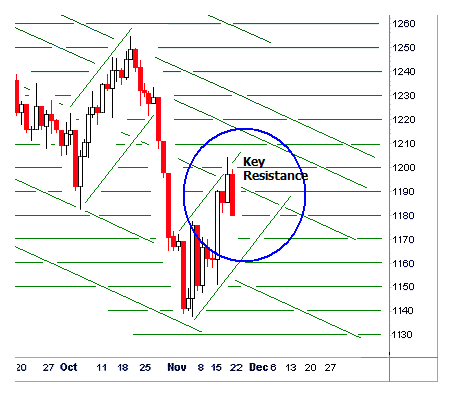The preamble to this
recent column by Ted Butler (subscription but worth it for his fine work in tracking the silver market) is a discussion of how 'gold loans' are not really proper loans, because the collateral gets reformatted and sold off.
What sparks the discussion is the recent talk and articles in Bloomberg about the Gold Forwards rates being negative, implying that it is difficult to obtain leased gold. Ted finds this kind of discussion frustrating apparently. They disclose rates, but not the amount of ongoing transactions.
I should add that to me there is little substantial difference between leases and swaps in what these fellows are doing. That seems to be largely a manner of terminology and choice of market venue when you boil the transaction down to the essentials.
Ted explains that when you loan a tool to your neighbor, you expect to get your tool back. In the case of gold leasing, as Bloomberg points out, the gold gets reformatted and sold off to Asia. So the gold leasing really does not make sense to Ted.
Now I would beg to differ at this point, because unlike your favorite power tool monetary objects are often considered to be 'fungible' and in a lease you may not expectto get the exact bars back necessarily. You merely ask for the same quality, form and amount as I understand it. If this is not the case, then Bloomberg has inadvertently disclosed a massive fraud.
You don't expect to get your bars back unless it is a custodial arrangement. But as the German people have recently discovered, good luck with that. You may get whatever the custodians at the Fed can find, because they have not merely stored the gold for you, but they have apparently utilized it.
Therefore, Ted's reasoning goes, because they do not make sense, gold leases do not exist in any appreciable size anymore. They were just a kind of fad perpetrated by JPM and some foolish miners some years ago. That forward selling in the form of hedges blew up badly and miners like Barrick were forced to take sizable losses in a rising market.
At this point I would say the leases do not make sense, but not for the same reason Ted cites. They do not make sense to me because they both misprice the counterparty risk AND the terms and other details of the leasing are not disclosed to all the interested parties. The lenders who are central banks do not inform. the public who actually own their nation's gold. Such leasing ought to be disclosed transparently and in real time.
But this is not the case. The lengths to which the public must go to discover the extent of the leasing of their gold has been well documented by GATA for example.
The reason I find Ted's conclusion weak, and potentially harmful, is that it is obviously based on the 'efficient markets hypothesis.' If something does not make economic sense, it ought not to exist in an efficient market, and therefore it does not exist except as some limited anomaly. Gold leases don't make sense to me, so therefore they do not exist, or if they do, are not significant enough to be considered.
Economists used to joke that if you told an efficient markets guy that there was a ten dollar bill lying on the sidewalk, he would reply that 'there couldn't be, because if there was someone would pick it up.'
I have asked the fellows at GATA if they have any firm numbers on current gold loans out, primarily from central banks. I know this is an ongoing quest because central banks are notoriously reticent to providing any such details of their activities.
We know leasing exists, we know the rates, we just do not know the details of the size of the market and the extent of the deals.
I found this column to be of concern because Ted is a very well respected analyst. I read his columns regularly and like him quite a bit. So I do not wish this to seem to be overly critical. And I realize that it might seem that I am trivializing his argument, but this is the heart of it.
Ted has been quite vocal in asserting that JP Morgan et al. have been manipulating the silver market based on what he has seen at the Comex.
But I did want to take the time to point out that a) gold leasing is not like lending out a specific object and b) just because something does not make economic sense to you, does not mean it is not happening. His argument is not based on any new data, but rather dismissive of something because there is no 'smoking gun' available, only circumstantial evidence.
These markets and this financial system is all too often the story of all control frauds and bubbles, and misappropriation of others people's money and goods. Lots of things don't make sense to the rational, honest mind anymore. Many of the financial deals that cities, counties and nations engaged in that cost their people hundred of millions of dollars made no economic sense. But there they are.
The efficient markets hypothesis has been used to justify an enormous amount of financial fraud and bad policy decisions over the past thirty years. It is the mother of frauds, from MF Global to Enron to Madoff to the Housing Bubble.
These are smart and important men. They are far too rational and god-like, your betters, to do things that you would not even think of doing. They are 'the System.'
Given the extent of the frauds and riggings, I am often tempted to think these days that if there is money to be made at it, if it is being conducted in secrecy, and if it involves other people's property, people who are relatively unheard and powerless, it probably does exist. But I prefer to stick to the facts, even if it is a plodding and sometimes frustrating path.
GATA was kind enough to provide this link to more recent news below. What do you think they mean by 'actively managing their gold reserves?' Moving the bars around and dusting them off?
If the world 'leasing' troubles you, think about OTC swaps.
Ted Butler's column of Nov 19 - Popular Misconceptions
"Gold loans are fraudulent through and through, because the real owners don’t get the proceeds when the sale is made and the collateral ends up with an unrelated third party who has no obligation to return the metal. But because they appeared to work for a while, otherwise intelligent people overlooked the obvious fraud and collected the benefits while they were available. Today, those tracking gold loans report the amounts of these loans outstanding are down 95% from levels at the peak around the year 2000. For me, I can’t figure out how even 5% of these loans could still be in existence.
That’s why I’m skeptical about all the talk of GOFO and gold lending as who in their right mind would ever loan or borrow metal under the circumstances I’ve described? There are few, if any, documented instances of specific loans and the parties involved or to the purpose of these loans. I suppose it might make sense to be a borrower if one intends to default on the loan, but that’s hardly legitimate. Likewise, I suppose a central bank might lease metal if there was an illegitimate intent to depress prices, but that couldn’t be discerned from GOFO rates.
Therefore, I think all the articles and commentary about GOFO are still goofy and unproductive. It seems akin to some deep debate by religious philosophers during medieval times about how many angels can dance on the head of a pin. I’m not trying to be insulting, because I believe there is a negative side to the current discussion about gold loans and lending rates that would be eliminated if the discussion ended once and for all. There is somewhat of a common denominator in the debate over gold lending in that most reporting on GOFO appear to be staunch believers in the ongoing gold and silver price manipulation. It is also well-known that those who insist that there is an ongoing manipulation in silver and gold (like me), are considered to be fringe conspiracy theorists. I think that is somewhat earned because so many who believe in manipulation tend to espouse other conspiracy theories (definitely not me). "















































